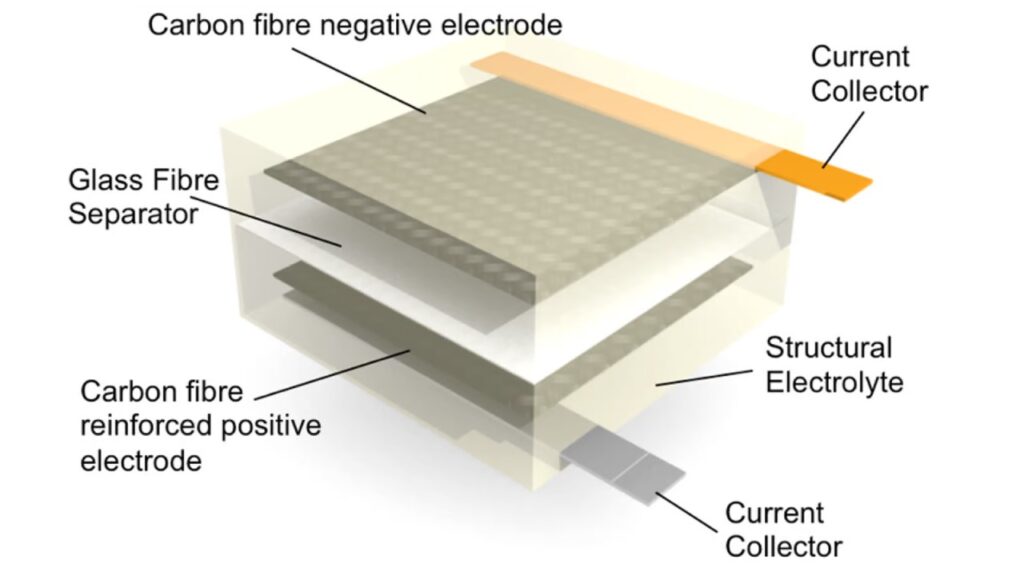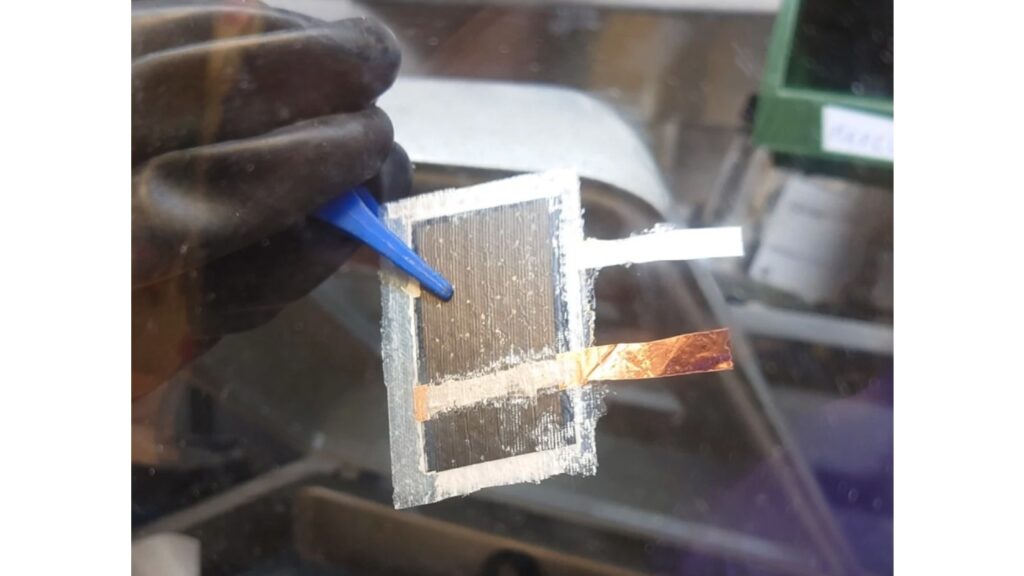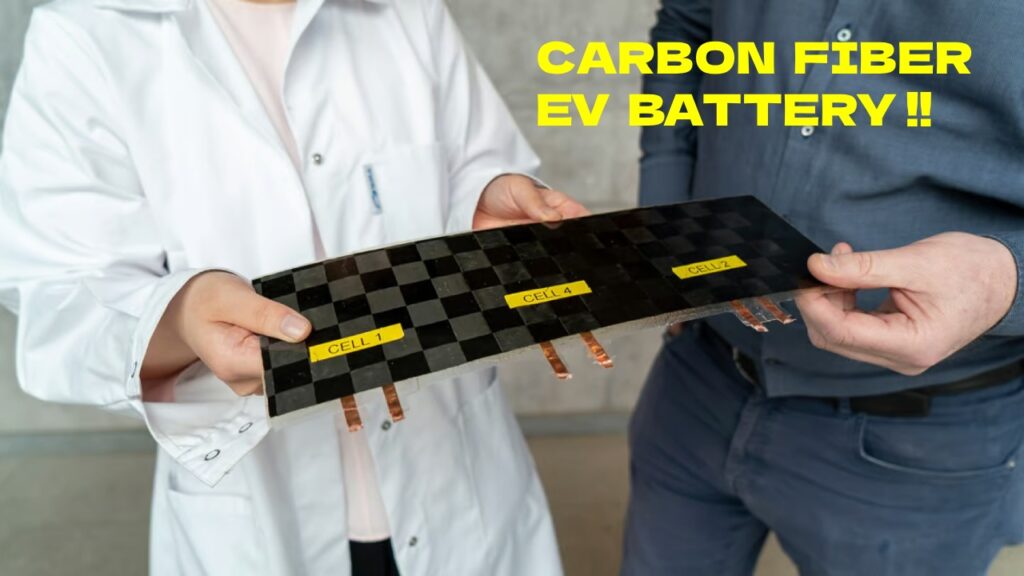Chalmers University of Technology from Sweden commenced working on this technology which has now resulted in a startup called Sinonus.
The carbon fiber battery technology could be the next big thing for EVs, along with many other industries. Sinonus is a Swedish startup which aims to commercialize a new breed of multifunctional carbon fiber. Staying with electric cars, these batteries offer unique characteristics like significantly lower weight than traditional lithium-ion batteries and becoming the structural component of an EV. This battery was born as a prototype in Chalmers Lab in 2021.

You might also like: Top 5 Carmakers Working On Solid-State Batteries For EVs – Toyota To BYD
Carbon Fiber Battery For EVs
At present, most EVs use a battery pack which is heavy and is generally a separate component. That is detrimental to the range an electric car can offer. However, carbon fiber batteries offer two significant benefits to remedy that. Firstly, they weigh only a fraction of what a regular Li-ion battery does. Secondly, they will add to the structural stiffness of the EV. In essence, the carbon fiber battery stores its own power by being the electrodes and doesn’t require a heavy casing of steel or aluminium.
Currently, this concept has been proven by replacing AAA batteries with these carbon-electrode units in low-power applications. Sinonus CEO, Markus Zetterström said, “Storing electrical energy in carbon fiber may perhaps not become as efficient as traditional batteries, but since our carbon fiber solution also has a structural load-bearing capability, very large gains can be made at a system level.”
I must mention here that Sinonus has not announced the energy density of this battery. However, the prototype from the Chalmers Lab in 2021 had a low density of 24 Wh/kg. Still, a previous study by Chalmers found that structural carbon fiber batteries had the potential to increase the EV range by up to 70%. Furthermore, the lower density can also be a good thing since it eliminates the volatile chemicals and high energy concentrations leading to a decrease in chances of catastrophic failure and fires.
Finally, the other huge challenge is the cost. While lithium-ion batteries are notoriously expensive, carbon fiber is not cheap either. Therefore, going forward, this would be a huge issue for the Swedish startup. It will need to make sure that a carbon fiber battery for EVs is more affordable than a Li-ion battery, offers more safety and weighs less. A decent range will be the natural consequence of the low weight despite low energy density.

You might also like: CATL Unveils World’s First LFP Battery With a 1,000-km Range
Learn Electric Cars Says
Now, I am always intrigued and excited about discussing upcoming technology to remedy the existing challenges with EVs. I understand that not all of these new solutions will be successful. Still, these are the stepping stones to achieve a handful of efficient techniques to address the grave concerns regarding electric cars. Also, it is clear that it will take a long time before we get a unanimous solution to make EVs a household name. Until then, let us keep in touch with the latest happenings from the global EV industry.

